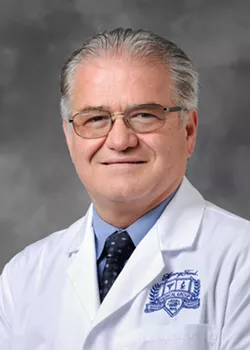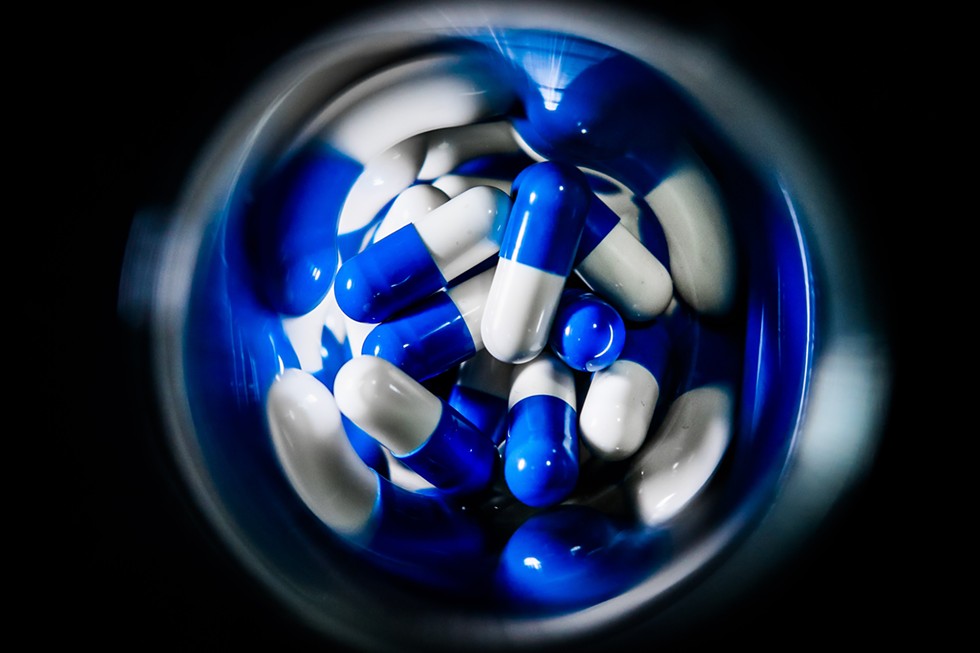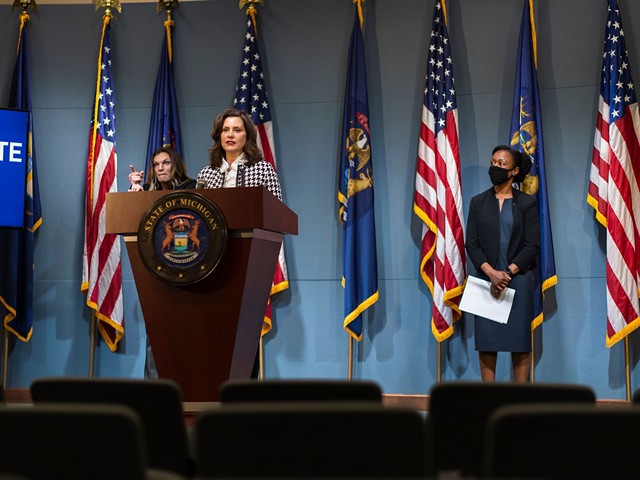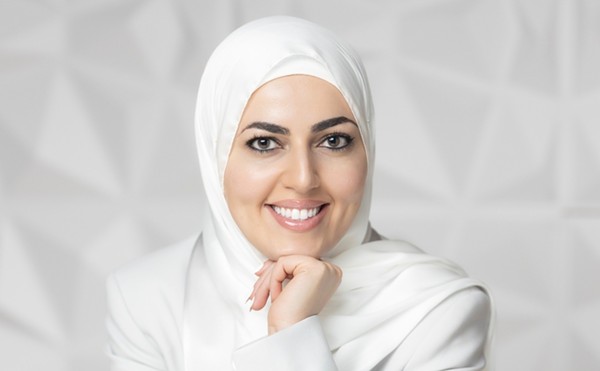If you've felt lately that the reality-TV-show presidency of Donald Trump has begun to feel a bit like an infomercial, you'd be forgiven. Trump has increasingly taken airtime to push an antimalarial drug called hydroxychloroquine as a possible, albeit unproven, coronavirus medication. In repeated, cringe-worthy press briefings throughout the crisis, an unofficial slogan for the drug has emerged from Trump:
"What do you have to lose?"
Well, possibly a lot. While hydroxychloroquine and its chemical cousin chloroquine have long been approved by the FDA to treat malaria, and hydroxychloroquine has been approved to treat lupus and arthritis, the Food & Drug Administration issued a warning in April that they should not be used to treat COVID-19 outside of a hospital setting or clinical trials due to risk of potential heart rhythm problems. So last week, the (hopefully) final season of The Trump Show took a dramatic twist when the president revealed he had secretly been taking hydroxychloroquine himself for about a week and a half as a preventive measure. Or at least that's what he claimed.
"All I can tell you is so far I seem to be OK," Trump said last Monday. "I get a lot of tremendously positive news on the hydroxy."
Later that day, Trump's physician Sean Conley issued a memo. "After numerous discussions he and I had regarding the evidence for and against the use of hydroxychloroquine, we concluded that the potential benefit from treatment outweighed the risks," he wrote, adding that he was monitoring "myriad studies investigating potential COVID-19 therapies." Notably, the memo fell short of confirming that he prescribed the drug for Trump or that the president was even actually taking it.
Still, Trump's claim was shocking because a 2018 physical examination showed that he has a common form of heart disease, potentially putting him at risk for death. Plus, other possible hydroxychloroquine side effects include hallucinations, paranoia, and psychosis.
By Sunday, or 1,000 years in Trump Time, the president claimed he was no longer taking the drug — but declined to say why.
"Finished, just finished," Trump told Sinclair Broadcasting. "And by the way, I'm still here. To the best of my knowledge, here I am."
It was just the latest dramatic episode involving the drug. A month earlier, Trump got a full-throated testimonial from Democratic state Rep. Karen Whitsett, of Detroit, who said that she believed the drug cured her COVID-19 within just a few hours of taking it.
Whitsett told Fox News's Laura Ingraham that as her condition worsened in March, as Detroit and especially Black Detroiters were hit hard by the virus, she learned of the drug from Trump, but "had to beg and plead and go through a whole lot to try to get the medication." That month, the Michigan Department of Licensing and Regulatory Affairs had issued a state order prohibiting the use of hydroxychloroquine and chloroquine to treat COVID-19, threatening "administrative action" against doctors who prescribed the drugs.
The move drew accusations from the right that Gov. Gretchen Whitmer, who had been sparring with Trump on national TV over his slow coronavirus response and federal aid for Michigan, had "banned" the drugs merely to spite the president. "How many lives were lost because Gov. Shitmer was playing politics?" a typical Metro Times troll comment from that time read. (Within weeks, as the COVID-19 death toll soared into the thousands and it was clear that the coronavirus was disproportionately impacting Black communities, the right swiftly changed its tune, declaring the coronavirus crisis to be overblown.)
For all the buzz about hydroxychloroquine, the fact remains that it’s still an unproven COVID-19 treatment.
tweet this
It turned out that it was actually Republican Senate Majority Leader Mike Shirkey who asked the governor to issue the letter, later telling The Detroit News that the intent of the prohibition was to make sure that the drug was being reserved for non-COVID-19 patients. "We needed something to prevent [the drugs] from becoming the next toilet paper," he said. The fear was not without merit: In March, Propublica reported that some doctors were indeed prescribing hydroxychloroquine for themselves and their family members and hoarding supplies. And Bloomberg reported that hydroxychloroquine prescriptions soared to 298,660 during the week of March 20, more than doubling from a week earlier. Within days, however, LARA rescinded the ban on the drugs, as the federal government released medications from its stockpiles.
None of that fit Trump's narrative, however, which Whitsett was all too happy to play into. "If President Trump had not talked about this, it wouldn't have been something that would be accessible for anyone to be able to get right now," she told Fox News. This pleased Trump.
"Congratulations to State Representative Karen Whitsett of Michigan," he tweeted. "So glad you are getting better!" He later invited her to the White House. (In response, Detroit Democrats unanimously voted to censure her for "endangering the health, safety, and welfare of her constituents, the city of Detroit, and the state of Michigan.")
The drug's Michigan connections didn't end there. In April, Detroit Mayor Mike Duggan announced the nation's first large-scale study of the drug's effect on the coronavirus would take place at Henry Ford Hospital at the behest of doctors there.
"I wouldn't have put my reputation on the line with the FDA director to say, 'I think this is a high priority' if I didn't believe in these individuals," Duggan said at a press conference.
The announcement drew praise, but also backlash on social media, with people recalling the infamous and deadly Tuskegee experiment of the 20th Century. In the experiment, 600 Black men were told they were receiving free health care but were actually being observed to see the effects of untreated syphilis — sowing distrust of the health care system in the Black community.
"Nobody's promising any results here," Duggan said. "We don't know. But what you've got is some of the finest scientists in America believe this has potential, and the only way we're going to find out is to give it a try."
For all the buzz about hydroxychloroquine, the fact remains that it's still an unproven COVID-19 treatment. And there are plenty of early signs that cast doubt on Trump's claims. A study published last week in the medical journal Lancet that looked at 96,000 hospitalized coronavirus patients on six continents found that COVID-19 patients who received hydroxychloroquine had a significantly higher risk of death compared with those who did not — a 34 percent increase in risk of mortality and a 137 percent increased risk of a serious heart arrhythmias. For those receiving hydroxychloroquine and the antibiotic azithromycin, a combination promoted by Trump on Twitter, there was a 45 percent increased risk of death and a 411 percent increased risk of serious heart arrhythmias.
"It's one thing not to have benefit, but this shows distinct harm," Eric Topol, a cardiologist and director of the Scripps Research Translational Institute, told The Washington Post. "If there was ever hope for this drug, this is the death of it."
In the meantime, Trump has continued to stoke a hydroxychloromania that threatens to distract from the science — and could endanger lives.

Trump's obsession
How did hydroxychloroquine become a major player in the coronavirus crisis? Many on the left latched onto a New York Times article that found Trump and several of his associates could stand to profit from the drug if it proved to be an effective coronavirus treatment. According to the report, Trump has "a small personal financial interest" in Sanofi, the French drugmaker that makes Plaquenil, a brand-name version of hydroxychloroquine. A follow-up Washington Post story debunked the claim, pointing out that compared to his net worth, Trump's investments in Sanofi are negligible. "If you were worth $100,000, it would be like worrying about the nickel in your pocket," the Post's correspondent Philip Bump wrote. (Then again, Trump is kind of a notorious cheapskate: Spy magazine famously pranked him in the '90s by sending increasingly smaller checks to see if he would cash them. Trump was one of only two people to cash a $0.13 check.)
As Media Matters pointed out, the root of Trump's obsession with the drug is likely much more mundane: a natural consequence of the Trump-Fox News pipeline.
After initially downplaying the coronavirus crisis as a "hoax," Fox News pivoted in March, as the virus took hold across the country. Part of the pivot included calming its viewers with possible quick fixes. One of those was hydroxychloroquine, which the network began touting as early as March 12. Lawyer Gregory Rigano discussed a controversial French study pointing to hydroxychloroquine's purported benefits on March 16 and March 18, telling The Ingraham Angle that "we have strong reason to believe that a preventative dose of hydroxychloroquine is going to prevent the virus from attaching to the body and just get rid of it completely."
On March 19, Trump started shilling the drug at a press briefing, saying it has "shown very encouraging — very, very encouraging early results." That night, Ingraham boasted on her show that Trump learned about the drug because of her coverage, and after his press conference the drug company Bayer donated 3 million of the pills to the Trump administration.
"With the president effectively signing off on Fox's positive coverage of the malaria drugs, the Fox-Trump feedback loop was engaged," Media Matters reported. "Trump's remarks triggered more Fox commentary about the potential benefits of chloroquine and hydroxychloroquine, which in turn kept them fresh in his mind and led to more statements, which led to more coverage on the network."
The Trump-Fox News feedback loop is not perfect, however. The day Trump claimed he was taking the drug, host Neil Cavuto reacted to the news in real time with shock on his show.
"That was stunning," Cavuto said, mentioning studies about the potentially fatal effects of the drug on patients with heart conditions. "If you are in a risky population here and you are taking this as a preventive treatment to ward off the virus — or in a worst-case scenario, you are dealing with the virus and you are in this vulnerable population — it will kill you. I cannot stress enough: This will kill you."
(That evening, Trump took to Twitter to say that Fox was no longer his favorite channel. "@FoxNews is no longer the same. We miss the great Roger Ailes," he tweeted, referencing the network's disgraced former CEO who was ousted after sexual assault allegations. "You have more anti-Trump people, by far, than ever before. Looking for a new outlet!")
Trump's fixation on the drug has caused his top health officials much consternation. In March, Dr. Anthony Fauci, the government's top infectious-disease expert, contradicted Trump during one of those cringe-worthy press briefings. "The information that you're referring to specifically is anecdotal," he said of the drug. "It was not done in a controlled clinical trial. So you really can't make any definitive statement about it."
"I don't want to embarrass him," Fauci later told The New York Times. "I don't want to act like a tough guy, like I stood up to the president. I just want to get the facts out." In another joint press briefing in April, Trump interrupted Fauci from answering a reporter's question about the drug, saying, "Do you know how many times he's answered that question? Maybe 15." Stunned, Fauci just stood there, awkwardly smiling.
Things came to a head in April, when Dr. Rick Bright — then-director of the Biomedical Advanced Research and Development Authority, the federal agency tasked with developing a coronavirus vaccine — filed a whistleblower complaint, alleging he was ousted from his position because he resisted pressure to push hydroxychloroquine and chloroquine as COVID-19 treatments.
One example cited in the complaint was the 3 million-pill donation from Bayer that was a direct result of the Fox-Trump feedback loop. Bright was concerned because the pills came from facilities in Pakistan and India that were not approved by the FDA and therefore not approved for use in the United States.
"While I am prepared to look at all options and to think 'outside the box' for effective treatments, I rightly resisted efforts to provide an unproven drug on demand to the American public," Bright said in a statement. "I insisted that these drugs be provided only to hospitalized patients with confirmed COVID-19 while under the supervision of a physician."
The Bayer donation was ultimately approved, along with other massive donations from pharmaceutical companies, and added to the federal Strategic National Stockpile.
Drinking the Kool-Aid
Trump's repeated touting of the drug has not been without consequence. An incident in March that called to mind the Jonestown cult massacre saw an Arizona man and his wife hospitalized after the couple, both in their 60s, ingested a form of chloroquine phosphate. The version of the chemical they took, however, was an additive commonly used at aquariums to clean fish tanks. The man died of cardiac arrest.
"Given the uncertainty around COVID-19, we understand that people are trying to find new ways to prevent or treat this virus, but self-medicating is not the way to do so," Dr. Daniel Brooks of Arizona's Banner Health hospital told NPR.
Hence the clinical trials. Unlike the Lancet report, which centered on COVID-19 patients, the Henry Ford Health System study is looking at hydroxychlorquine's effectiveness as a prophylactic, or preventive measure for COVID-19. The study is seeking 3,000 first responders in southeast Michigan — health care workers, firefighters, police officers, and others who are at high risk of coming in contact with the coronavirus — to volunteer to take the drug.

Dr. William O'Neill, a cardiologist at Henry Ford Hospital who is leading the study, even volunteered to be its first test subject.
"I wanted to be the first patient, but the ethics group said that I can't be in the trial and be one of the investigators of the trial," he tells Metro Times. But O'Neill's son, also a cardiologist at the hospital, is participating in the study.
O'Neill says so far, some 2,000 volunteers have registered to enroll, and about 600 are actively taking medication. Due to the drug's possible adverse reactions in people with heart conditions, all volunteers are screened for heart diseases, particularly those with a condition known as Long QT syndrome, as well as anyone with a history of sudden death in their families. The medication comes from the Strategic National Stockpile, so the study will not interfere with non-COVID patients who need it. (The pills were donated by Mylan, and were manufactured at the company's facility in West Virginia.) O'Neill says an interim analysis is expected by the end of July.
The study was prompted by observations in China, where the virus originated, that found around 200 patients who had already been taking hydroxychloroquine for lupus therapy appeared to not become infected with COVID-19. In Italy, another country that was hit hard by the pandemic, doctors found that only 20 out of 65,000 patients taking Plaquenil to treat rheumatic diseases contracted the coronavirus.
"It looks like it's very, very effective in preventing people from getting the illness," O'Neill says, noting that the drug had already long been prescribed for people traveling to malaria-prone regions of the world as a preventive measure. "We're not advocating it right now. We're just trying to scientifically study whether it's effective or not."
Most importantly, the study is randomized and double-blind, meaning that neither the person taking the medication nor the doctors administering the medication know if they're taking hydroxychloroquine or a placebo.
Dr. Abdul El-Sayed, the former health director of the City of Detroit who ran against Whitmer as a progressive Democratic candidate for Governor, says double-blind tests are "the gold standard" for science. And that, he says, is what's getting lost amid the politics surrounding the drug.
"The only reason people are talking about hydroxychloroquine is because Donald Trump said anything about it," El-Sayed says. "He has this remarkable capacity to politicize everything he touches in a very divisive way. If he never said anything about it, it would be an obscure drug that people who are doctors or who have chronic autoimmune diseases would know about, and everyone else would have never heard of it."
El-Sayed says "there's a deeper issue here, which is about the sanctity and the process of science. If you believe in science, then we let science tell you what we should be putting in people's bodies to prevent or treat a very serious infectious disease. It's a process by which we come to understand whether or not this drug is effective for the stated purposes, and whether or not it's safe. And now, the evidence suggests that the safety outweighs the efficacy, and we shouldn't be using it for this purpose."
But "that doesn't seem to matter because now Donald Trump has put his golden letters on it, and, it's turned it into this Republican talking point about how those of us who believe in science are rooting against the treatment, which is absurd," he says. "Science literally is about putting your biases aside. Nobody's rooting against Trump. We're rooting against coronavirus, and we're rooting for science to help us beat the coronavirus because it's been the best tool that we've ever had to prevent and cure disease in humans."
The science could very well find hydroxychloroquine to be an effective prophylactic against COVID-19, but we won't know until a double-blind, randomized trial concludes as much.
"It shouldn't be played out in a public political stage," El-Sayed says.
For all the energy spent on arguing about hydroxychloroquine, and despite Trump calling it a "game-changer," it's not even the most promising COVID-19 treatment on the horizon. There are hundreds of trials for potential vaccines underway, with the hope that they could cure the disease.
Around the world, some of the countries that have best been able to manage the spread of the coronavirus have implemented strategies like cellphone-enabled contact tracing, which tracks who has the virus and everyone they could have potentially transmitted it to. But many of those countries have something the U.S. doesn't: universal health care.
El-Sayed, a proponent of Medicare for All, believes the coronavirus crisis could have been better managed under that system.
"There's no doubt that under Medicare for All this would have been so much more efficiently handled," he says. "Not only would 27 million people not have lost their health insurance because they lost their jobs, but the health care system itself wouldn't be facing bankruptcy while it's also trying to battle a major pandemic. We would have the [Personal Protection Equipment], the ventilators, and the hospital capacity that we needed. The investment in prevention could have been so much greater because the government [would have] an incentive to protect everyone. It would be an elegant solution to all of those problems."
For now, El-Sayed says "the limitations of the leadership of our federal government right now give me no confidence" in a robust contact tracing and testing system mobilizing anytime soon.
"We don't have that in the federal government, and we're not going to have that at least until next January," he says.
Stay on top of Detroit news and views. Sign up for our weekly issue newsletter delivered each Wednesday.








